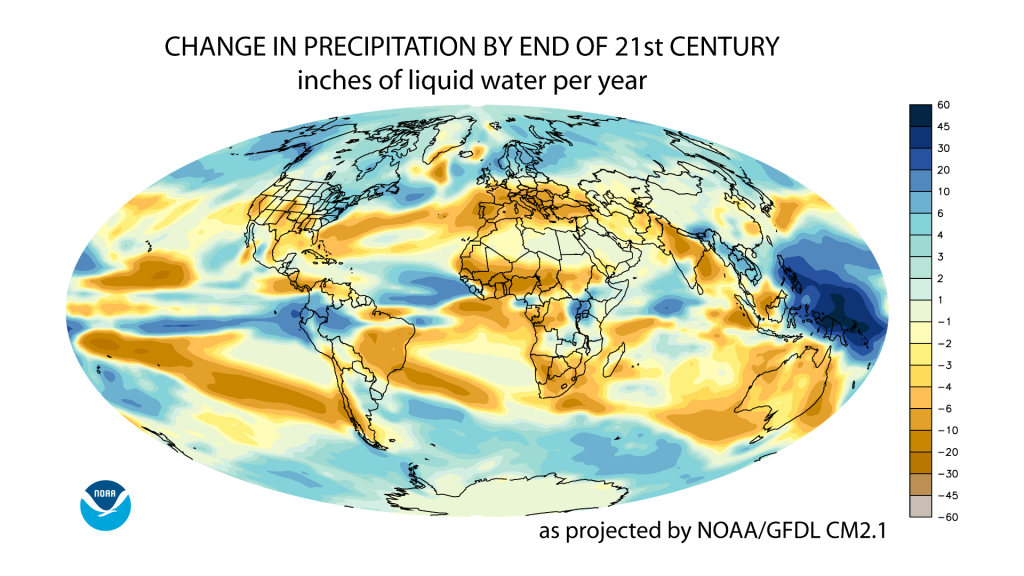The Geophysical Fluid Dynamics Laboratory of the National Oceanic and Atmospheric Administration recently released a report "WILL THE WET GET WETTER AND THE DRY DRIER?"
And while I urge all of my readers to take it with a reasonable level of serious concern, on a lighter note, I would argue that the map suggests by the end of the 21st century, Laos, being in the center of Southeast Asia, actually might come out ahead in such an otherwise dire scenario.
For Lao, the takeaway seems to be Laos should spend the next 20 or 30 years investing in ship-building technology, aquaculture and agriculture that flourishes with water. Most of the rest of the world is projected to suffer from extreme drought and unbearable temperatures according to the map from the GFDL and NOAA.

The science wonks prefer the caption to be: "The change in annual average precipitation projected by the GFDL CM2.1 model for the 21st century. These results are from a model simulation forced according to the IPCC SRES A1B scenario [IPCC, 2000] in which atmospheric carbon dioxide levels increase from 370 to 717 ppm. The plotted precipitation differences were computed as the difference between the 2081 to 2100 twenty year average minus the 1951 to 2000 fifty year average. Blue areas are projected to see an increase in annual precipitation amounts. Brown areas are projected to receive less precipitation in the future. (Note the irregular color bar intervals.)"And while I urge all of my readers to take it with a reasonable level of serious concern, on a lighter note, I would argue that the map suggests by the end of the 21st century, Laos, being in the center of Southeast Asia, actually might come out ahead in such an otherwise dire scenario.
For Lao, the takeaway seems to be Laos should spend the next 20 or 30 years investing in ship-building technology, aquaculture and agriculture that flourishes with water. Most of the rest of the world is projected to suffer from extreme drought and unbearable temperatures according to the map from the GFDL and NOAA.

NOAA's roots "date back to 1807, when the Nation’s first scientific agency, the Survey of the Coast, was established. Since then, NOAA has evolved to meet the needs of a changing country. NOAA maintains a presence in every state and has emerged as an international leader on scientific and environmental matters."
Overall, something for our Lao Futurists to consider when drafting possible scenarios. I'm not inclined to say pushing for dams and disruptive hydroelectric power is ecologically sound presently, but if we were to take a long view of things, in the future, we would be significantly insulated for such a scenario if it comes to pass.
No comments:
Post a Comment